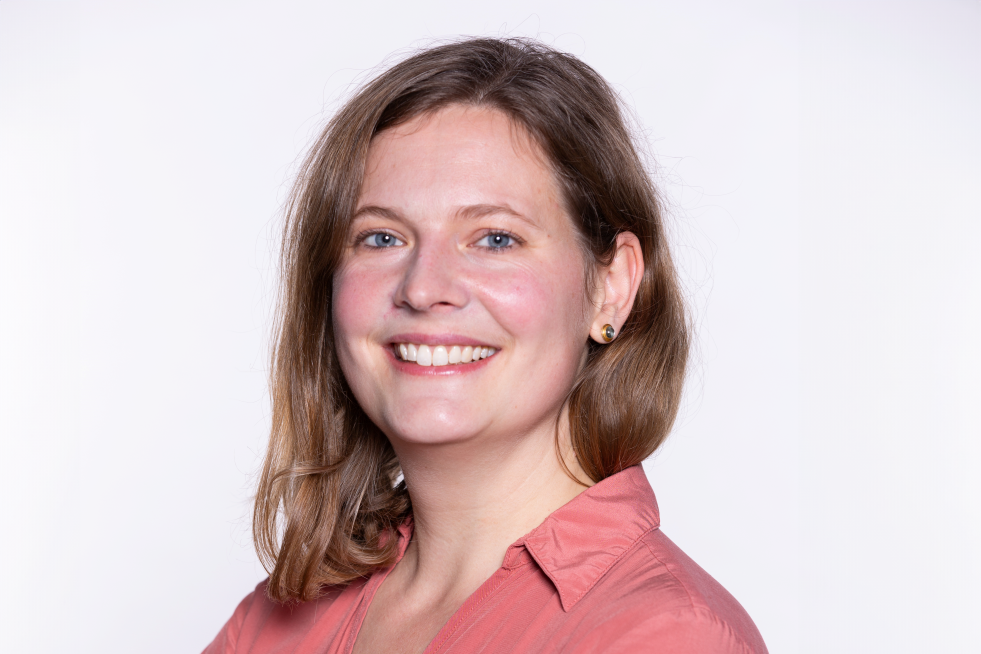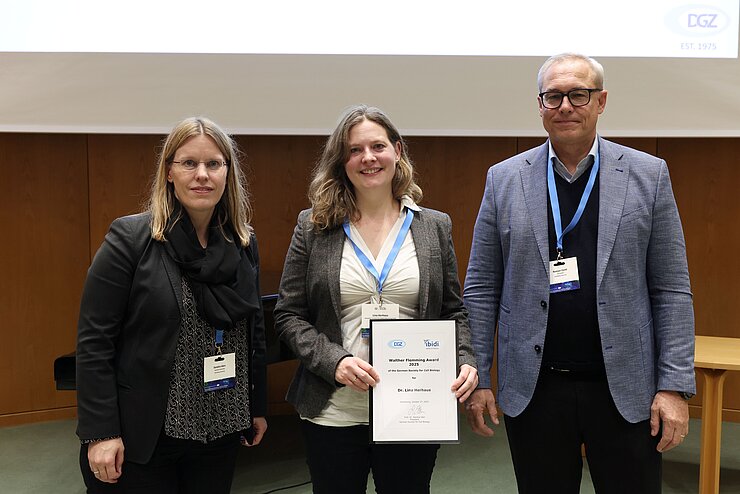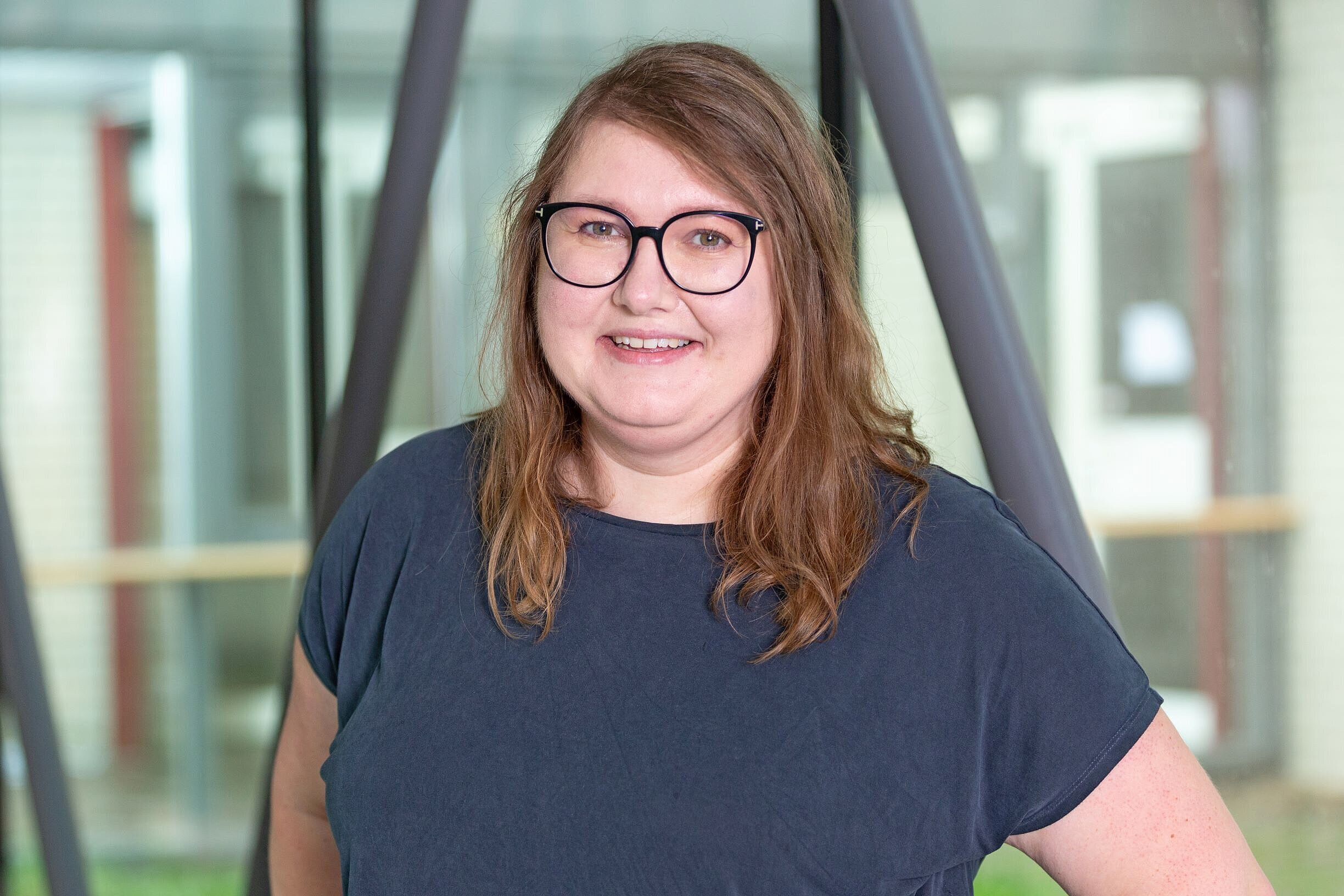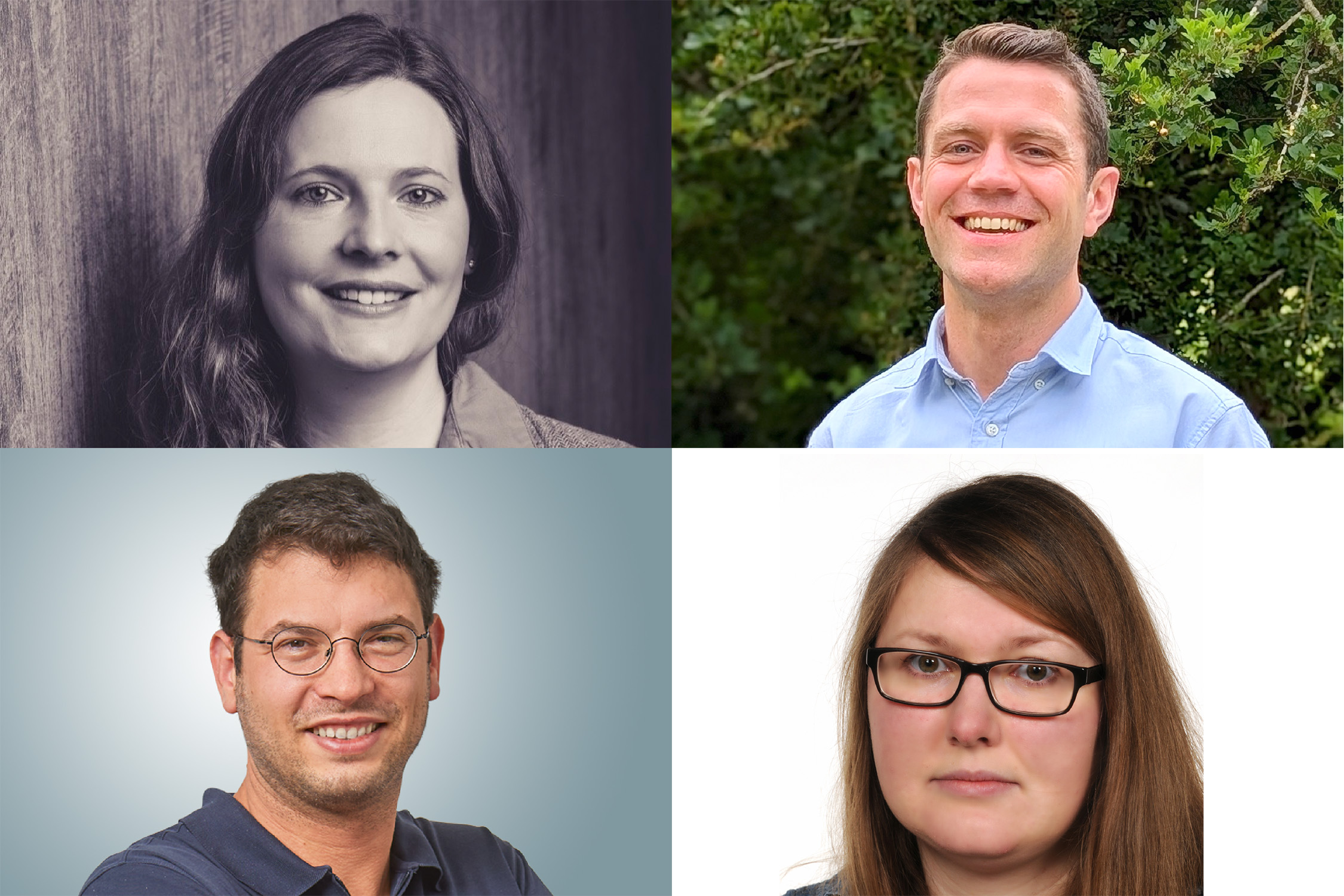With her research group at the HZI, Lina Herhaus is investigating how the immune system recognizes and responds to infections and inflammation. She focuses in particular on the molecular mechanisms involved in the processes by which cells combat pathogens and maintain their health. Herhaus hopes to use the findings to develop innovative therapies for infectious diseases and immune disorders, thereby improving public health in the long term.

Funding and award for HZI researcher Lina Herhaus
The Exploration Grant from the Boehringer Ingelheim Stiftung comes with funding of over €200,000 for a period of two years and is a major success for Lina Herhaus, as this prestigious grant is highly competitive. “I am very pleased about this funding and also about the Walther Flemming Award, because we can put the financial resources to good use to take a closer look at the processes of cellular defense against bacterial pathogens,” says Herhaus. “We want to understand how the immune system detects infections and the resulting inflammation and how it responds to them.”
Lina Herhaus started her research group in October 2024 as part of the HZI project MICROSTAR (Microbial Stargazing), which is funded by the German Federal Ministry of Research, Technology and Space (BMFTR) with around 30 million euros and currently comprises four junior research groups and a digital office. The aim of MICROSTAR is to learn from the microbial world and decipher the fundamentals of its resilience and adaptability in order to apply these principles for the benefit of humans and nature. In this project, the HZI is particularly dedicated to establishing junior research groups and providing extensive support for young scientists.
About the Foundation:
The Boehringer Ingelheim Stiftung is an independent, non-profit foundation that is committed to promoting the medical, biological, chemical, and pharmaceutical sciences. It was established in 1977 by Hubertus Liebrecht (1931–1991), a member of the shareholder family of the Boehringer Ingelheim company. Through its funding programmes CoMove, Exploration Grants, Plus 3, and Rise up!, the foundation supports excellent scientists during critical stages of their careers. It also endows awards for junior scientists in Germany. Additionally, it funds institutional projects in the life sciences, such as the AITHYRA Institute in Vienna and a new research department (BioAI) at the Center for Systems Biology in Dresden, which both combine biomedicine with AI. Other supported institutions include the Institute of Molecular Biology (IMB) in Mainz and the European Molecular Biology Laboratory (EMBL) in Heidelberg, both in Germany. www.boehringer-ingelheim-stiftung.de/en





